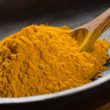You’ve probably heard of inflammation and inflammation cure being bandied about in many health and wellness circles, and for sure you’re starting to wonder what the fuss is all about. Basically, inflammation means your body’s reaction to irritation, injury, or even foreign bodies that are present inside of us. Our immune system reacts when we got stung, where the affected area is swollen and red. Once it is healed, the skin will go back to normal and our immune system will be back in its idle function.
However, chronic inflammation becomes a problem when our immune system remains active since there are studies that show that this is a factor to diseases such as diabetes, stroke, and other chronic diseases. That being said, our goal is to be able to reduce the inflammation in our body in order to prevent our immune system from being constantly active. And one way to do this is by following an anti-inflammatory diet. Here are the steps that you can follow:
Load up on vegetables and fruits
An anti-inflammatory diet is always packed with fruits as well as vegetables of every color, size, and shape. Add more of those that contain vitamin C, like citrus fruits, potatoes, and strawberries, as well as those with carotenoids such as cantaloupe, carrots, and tomatoes. These foods are essential in alleviating inflammation in your body.
Get more fiber
Another step that you should consider when following the anti-inflammatory diet is to have more fiber. This is relatively easy to do especially when you add vegetables, legumes, fruits, and whole grains in your daily meals. It is also advised that you avoid or at least reduce your consumption of refined carbohydrates since they can trigger inflammation.
Reduce alcohol consumption
Drinking alcohol in excess can cause inflammation in our body, but when taken in moderation, it may help reduce inflammation in your system. Just make sure that you limit yourself to two glasses if you are a male and one glass for female. More than that and you will be causing chronic inflammation when done regularly.
Choose healthy fats
Not all fats are dangerous to your health. There are some, such as those found in extra-virgin olive oil, nuts, avocados, and seeds are good for your overall health. This is why, it is important that you should try to avoid eating processed foods as much as possible, because they contain fats that trigger inflammation.
Drink tea
Another step to following an anti-inflammatory diet is to incorporate tea time in your diet as it is packed with phytochemicals that have been found to combat inflammation in your body. There are different types of tea in the market today such as oolong, black, and chamomile, but for anti-inflammation, your best bet is to go for green tea. Coffee has phytochemicals too, but when taken in excess, it can also cause inflammation in your body.
Spice up your dishes
What else should you try in an anti-inflammatory diet? Well, adding spices in your dish such as turmeric and ginger can also contribute to fighting off inflammation. You’ll also be able to give more flavor to your dishes too because of the robust flavor that the spices provide your meals with.
These are just a few steps that you can take when it comes to an anti-inflammatory diet. If you feel that you are suffering from chronic inflammation, or have been diagnosed with one, changing your diet is one of the best approaches that you can make to help reduce any inflammation that is happening in your body.













